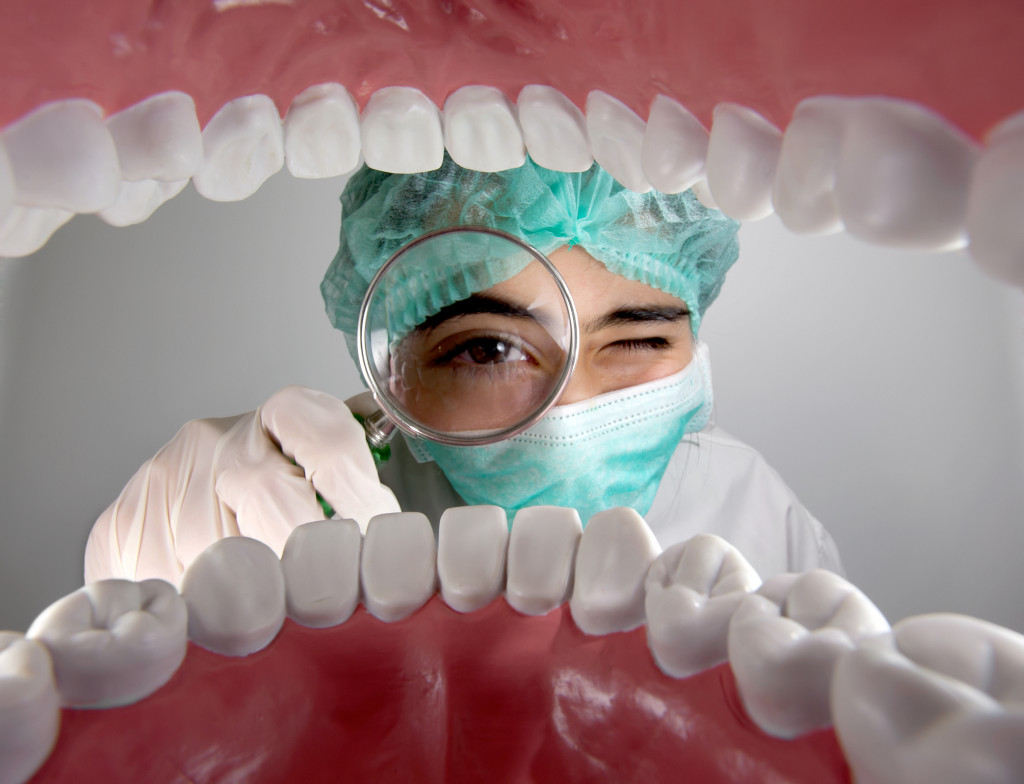- Bleeding gums can indicate serious dental problems, including gingivitis, vitamin deficiency, and oral cancer.
- Poor oral hygiene habits, such as irregular brushing and excessive consumption of sugary foods, are risk factors for gingivitis.
- Hormonal changes during pregnancy or menopause can also lead to bleeding gums.
- Tobacco and alcohol consumption, HPV, sun exposure, and genetics can all increase the risk of developing oral cancer.
- Maintaining good oral hygiene habits and scheduling regular checkups with your dentist is essential to prevent dental problems.
Oral health is an often overlooked aspect of personal health and well-being. As the saying goes, “prevention is better than cure,” and dental health is no exception. One standard indicator of poor oral health is bleeding gums, which can result from several dental problems. In this blog post, we will discuss how bleeding gums indicate severe dental issues and what you can do to prevent them.
Gingivitis
Gingivitis is a common dental condition that affects many people worldwide. It is a form of gum disease that occurs when the gums become swollen, red, and sometimes bleed. Although it may seem minor, gingivitis can lead to serious dental problems if left untreated.
Causes of Gingivitis
Gingivitis occurs due to inadequate oral hygiene, which leads to plaque build-up on the teeth’ surface. Plaque is a slimy film of bacteria that forms on teeth and gum lines. When not removed through regular brushing, flossing, and professional cleaning, it hardens into tartar, causing inflammation and irritation in the gums.
Risk factors of Gingivitis
Several factors can increase the risk of developing gingivitis. Poor oral hygiene habits such as irregular brushing and flossing, use of tobacco products, and excessive consumption of sugary foods and drinks are the most common risk factors.
Sadly, severe cases of gingivitis can lead to tooth loss. This happens because bacteria in the plaque and tartar can weaken the roots of teeth and cause them to decay. Thankfully, various teeth replacement solutions, such as dental implants, are available to replace lost teeth and restore a beautiful smile. These restorative treatments can help you maintain healthy teeth and gums and keep your smile looking great.
Vitamin Deficiency

Another common cause of bleeding gums is a vitamin deficiency, particularly vitamin K. Vitamin K helps blood clot, and a deficiency can cause bleeding gums, especially during brushing or flossing. Vitamin C deficiency can also cause bleeding gums, as it weakens blood vessels. Hence, getting adequate amounts of these vitamins is essential, either through dietary sources or supplements.
Hormonal Changes
Hormonal changes can also lead to bleeding gums. During pregnancy, hormone fluctuations can cause gums to bleed, which is known as pregnancy gingivitis. Women going through menopause can also experience hormonal changes that can lead to the same issue.
Oral Cancer
If not detected and treated early, oral cancer can have severe consequences, affecting various parts of the mouth and throat. It is a painful disease that should not be taken lightly. Over the years, the number of people diagnosed with oral cancer has continued to increase, making it essential to understand its causes and risk factors.
HPV or Human papillomavirus
Certain strains of HPV that are primarily sexually transmitted can increase the risk of developing oral cancer. The HPV vaccine can help prevent infection from these virus strains and can, in turn, reduce the risk of developing oral cancer.
Sun exposure
Prolonged exposure to the sun can increase the risk of developing lip cancer. Protecting your lips from the sun is important by using lip balm or lip sunscreen.
Diet
A diet low in fruits and vegetables can increase the risk of developing oral cancer. Eating a healthy, well-balanced diet can provide the body with the necessary nutrients to maintain a robust immune system and reduce the risk.
Tobacco and alcohol consumption

Tobacco and alcohol have long increased one’s risk of developing oral cancer. The chemicals present in tobacco products and heavy alcohol consumption can damage the DNA in the cells, leading to the development of cancer. If you use tobacco products or consume alcohol regularly, reducing your exposure as much as possible is essential.
Genetics
While external risk factors cause most cases of oral cancer, some instances may be hereditary. A family history of oral cancer can increase the risk of developing the disease. If you have a family history of oral cancer, it is essential to talk to your doctor and take proactive measures to reduce your risk.
The Bottom Line
Bleeding gums are not always a sign of severe dental problems, but it’s crucial to be aware of the underlying causes that can lead to them. Chronic bleeding gums can indicate a severe dental issue, so you must schedule regular checkups with your dentist.
Maintaining good oral hygiene, including regular brushing and flossing, can help prevent bleeding gums and other dental problems. Prevention is always better than cure, so stay informed, stay healthy, and care for your teeth.

